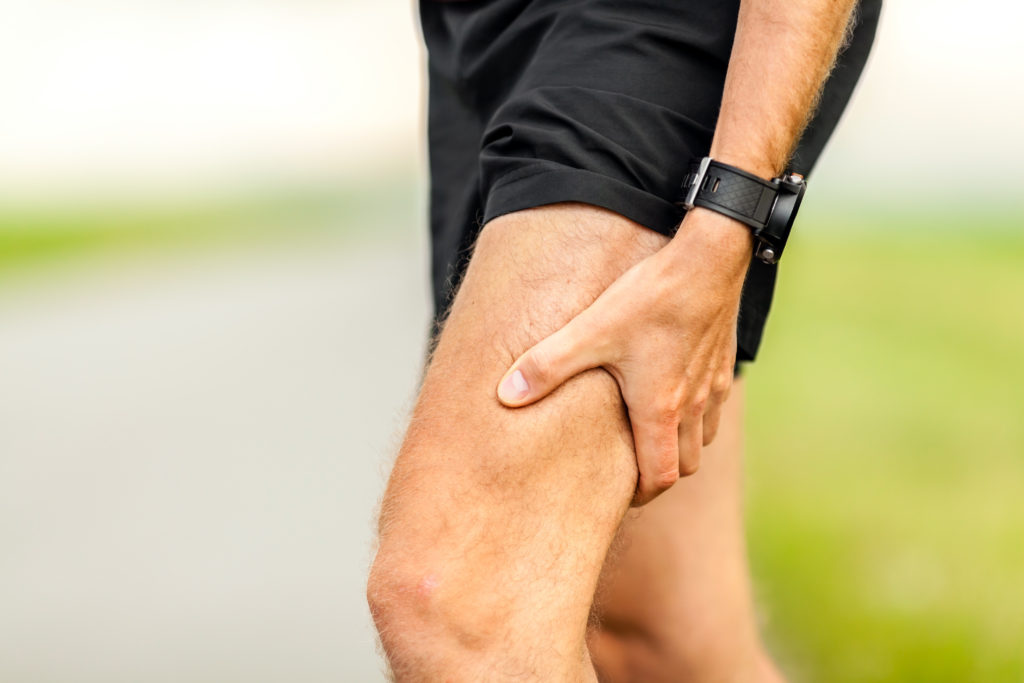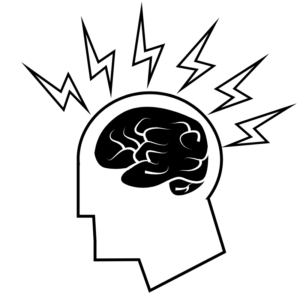We live in a culture of “grin and bear it.” If you’re experiencing any discomfort, the response we are told again and again is to push through.
With phrases like “push past the pain” and “no pain no gain” we expect ourselves and people in pain to simply “get on with life.”
What we don’t understand is that pain is more than just a nociceptor response to a painful stimulus (the technical definition of pain). It is a complex experience that is very personal.
Each person’s pain will feel differently and each person’s ability to cope with and overcome that pain will vary. In fact, if someone seems incapable of pushing past their pain there are likely other factors at play.
If someone seems able to bounce back quickly from their pain then that person likely has a great mindset. When someone is not able to bounce back from the pain they may be on the slow to recover continuum with regards to resiliency which may have been caused by early childhood traumas or depression.
You may find yourself “tired of hearing about a person’s pain” hoping they just get over it. We all have been there listening to someone ruminate about their pain experience but perhaps more than ever it is essential for us to understand how complex a person’s experience of pain really is. Our understanding of how pain holds a person back can have a great impact on their pain and ultimately how to support a friend or family member on their journey away from chronic pain.
Legend:
- Pain Point
- Pain Solution
- Source
1
- Chronic back pain may shrink the thinking part of your brain.
- How to Help: Realize that back pain often coincides with more sedentary lifestyles and other factors that can affect your brain. Even while your back hurts, you can make up for side effects with other brain-boosting behaviors.
- Source
2
- Lack of exercise leads to weight gain and depression. People in pain often feel they can’t exercise. The opposite is true. Exercising reduces pain and can shift you out of chronic pain. Don’t let pain get in the way of your movement.
- How to help: Invite your friend on walks with you.
3
- While it is important to understand your pain and address it, ruminating on the pain experience keeps you from learning which is why the thinking part of your brain actually shrinks while you’re experiencing chronic pain.
- How to cope: Instead of ruminating in the pain experience calmly take a few deep breaths and notice the scene around you.
4
- Chronic pain and the accompanying immobility may put a person at fall risk.
- How to cope: Take time to stretch every day.
5
- Experiencing pain may even reduce people’s desire to be part of social interactions.
- How to help: Push through these notions and do it anyway. Over time social interactions will become easier.
6
- Chronic pain may be at the source of emotional instability.
- How to help: engage in daily mindfulness exercises.
7
- People in pain feel like they can’t be part of the life events going on around them and may feel ostracized and unwilling to participate.
- How to help: when possible modify activities to make them more accessible.
8
- Sometimes the pain is so extreme for people that it takes away the desire to eat.
- How to help: Keep fruits and nuts on hand.
9
- Chronic back pain is an issue that affects a person’s ability to sleep.
- How to help: Take warm baths at night or take a sleep coaching class.
10
- Since pain signals that there is a problem pain motivates people to engage in avoidance behavior that discourages resilience in the face of adversity. Resilience is actually a great skill to learn to adapt to chronic pain.
- How to help: this is the moment to push past the pain. Go for a 15-minute jog will actually train the brain to realize you can do it regardless of pain, and that you are willing to act in the face of adversity.
11
- Chronic pain has the potential to affect a person’s mood, including feelings of fear and anxiety.
- How to help: calming mindful breathing and de-emotionalizing journalling.
- Source
12
- Many people experiencing pain turn to opioids for treatment which can have an adverse effect on respiration, digestion, and may even cause addiction.
- How to help: talk to your doctor about discontinuation plans and alert a family member or friend if you have been prescribed an opiate for pain.
13
- Trauma to the knee makes it difficult for individuals to hike up steep hills and access buildings and landmarks with a lot of stairs.
- How to help: try physical therapy and wear a knee brace.
14
- Migraines can be debilitating. People experiencing a migraine often need to isolate themselves from others and from the lights which can hold people back physically and socially.
- How to help: try green lighting and stay in darkness until the pain subsides. Schedule regular massage.
15
- Ocular migraines affect vision making it difficult for people to see clearly or at all. Some people report large black spots in their visual fields from these types of migraines.
- How to help: stay on top of the pain cycles of migraines. Try to resolve it before the pain reaches this point.
16
- People experiencing chronic pain often feel depressed which can trigger more pain and vice versa. This cyclical experience can be extremely frustrating.
- How to help: Individuals who engage in self-care and mindfulness daily can find relief and break the cycle.
17
- When a person with chronic pain focuses on their experience of pain, they use up more of their energy leaving them feeling like they have no energy throughout their day.
- How to help: try and distract your focus with positive activities and mindfulness exercises that keep you noticing your pain but not ruminating on it.
- Source
18
- Pain may take a toll on relationships and lead to low libido and difficulty communicating needs with family members and partners.
- How to help: find a friend or family member who can advocate for you at doctor’s visits or talk with a therapist about this experience.
- Source
19
- Living with pain may make it more difficult to heal from injuries.
- How to help: Daily acts of self-care can break you out of this cycle.
- Source
20
- Chronic pain may even affect diabetes management. A correlation was made between diabetes patients and a decreased ability to manage their diabetes and take on and maintain an exercise routine.
- How to help: schedule regular exercise with a friend.
- Source
21
- Once an individual is placed on an analgesic prescription such as an opioid that medication causes a whole host of effects known as “side effects” such as a depressed nervous system, difficulty breathing, fatigue, itchy skin, and constipation.
- How to help: talk to your doctor about alternative treatments for your pain such as acupuncture and massage.
22
- When it comes to mild and moderate pain many people use nonsteroidal analgesics (NSAIDs) which may take the pain away in the short term but if taken regularly can result in digestive issues and a rise in blood pressure.
- How to help: Use turmeric or other natural analgesics.
- Source
23
- Negative emotions can affect pain just like pain can be the source of negative emotions. You may see someone trapped in a vicious cycle with negativity aggravating the pain and pain aggravating their negativity.
- How to help: mindfulness exercises can get you out of this vicious cycle.
24
- As pain progresses from acute to chronic sleep can be impacted. Getting less sleep is an indicator of a lower quality of life.
- How to help: “relaxing distraction” to help break the pattern.
- Source
25
- As the experience of pain is so intricately linked with emotions and the brain, so does pain affect the mind. People in chronic pain will eventually notice difficulty concentrating and may notice that their memory is impacted.
- How to help: Try a compassion mindfulness practice.
26
- When muscles are neglected, they atrophy- another effect of avoiding exercise while in pain.
- How to help: Use resistance bands to help keep muscles toned and strong.
27
- People who experience chronic pain may have more difficulty making decisions.
- How to help: Find a support group.
- Source
28
- Chronic pain may have adverse effects on the endocrine system affecting particularly the hormones of women.
- How to help: Eat nutritious foods and consider supplementing with a multi-mineral and omega 3s.
29
- Pain can become triggered from adverse childhood experiences (ACES) which when left unprocessed can cause more pain throughout life-impacting relationships, jobs, and overall wellbeing.
- How to help: Cognitive behavioral therapy and regular exercise.
30
- Athletes with unresolved pain may experience depression or lack of desire to continue seeking help (helplessness).
- How to help: Physical therapy and a temporary switch in exercise types until muscles have healed.

